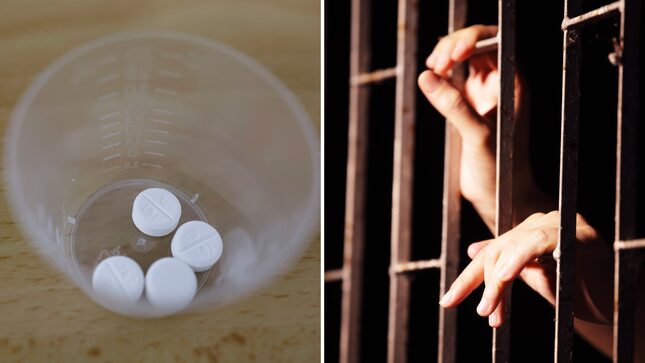Nebraska Teen Sentenced to Jail After Abortion Said She Didn’t Want Child With Abusive Partner
"You just didn’t want this baby, you didn’t want this pregnancy based on the person that got you pregnant," District Judge James Kube said.
AbortionPolitics

Celeste Burgess—the Nebraska 19-year-old who was sentenced to jail and probation on Thursday after she self-managed an abortion in April 2022 with her mother’s help—told the judge during her sentencing hearing that she was in an abusive relationship and didn’t want to parent a child with her partner.
Burgess pled guilty earlier this year to one felony charge of concealing or abandoning a dead body in exchange for prosecutors dropping two misdemeanor charges. Prosecutors allege that, when she was 17, she took abortion pills her mother purchased online, had a stillbirth at about 29 weeks, and the two burned and buried the remains. She was charged as an adult in August 2022.
According to the Norfolk Daily News, District Judge James Kube said the case was “difficult for a lot of people” and characterized the situation as Burgess simply not wanting to birth a child because of who the father was—a choice that, like any other reason for having an abortion, is a valid one. “I don’t get the impression, from reading all the reports in the pre-sentence investigation report, that there was some kind of physical health issue that was going on,” Kube said. “I tried to talk to you about that a little bit, and you confirmed that you just didn’t want this baby, you didn’t want this pregnancy based on the person that got you pregnant.” (Jezebel requested a copy of this report but a court clerk said it’s not public and is only for the judge to review.)
-

-

-

-

-

-

-

-

-

-

-

-

-

-

-

-

-

-

-

-

-

-

-

-

-

-

-

-

-

-

-

-

-

-

-

-

-

-

-

-








































